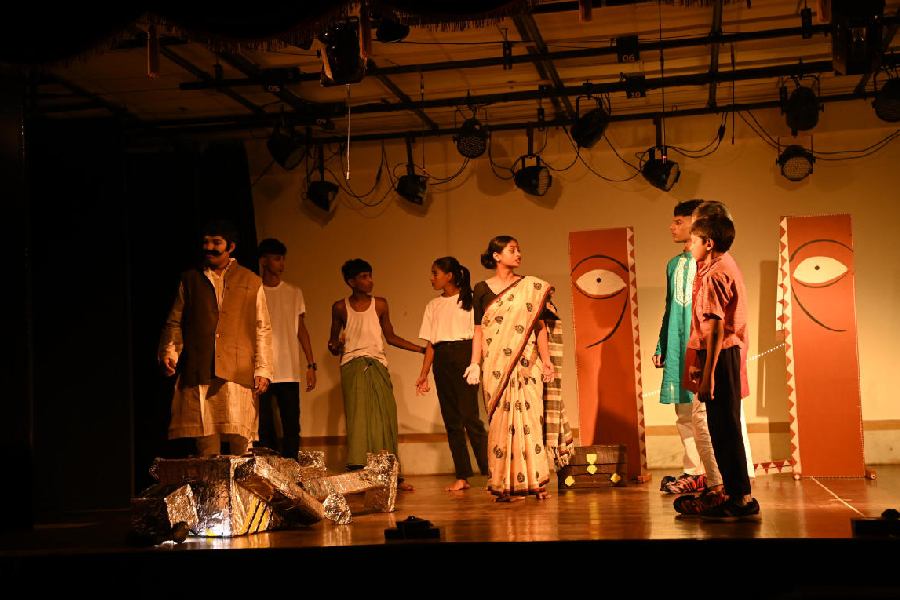Satyajit Ray’s stories were read and interpreted by students from deprived and difficult backgrounds who adapted them into plays.
The children had their take.
For example, Hirak Rajar Deshe is not the story of the kingdom of the Diamond King but that of a political leader trying to clamp down on the rural education system. “If you read and write, you are going to die of starvation,” the leader tells his electorate.
The students of Future Hope presented Ray of Hope, an inter-house drama competition on August 31.
The students from ages eight to 17 read up Ray and dramatised some of his stories.
The plays Bhuto, Hirak Rajar Deshe, Sonar Kella Revisited and Baksa Badol were presented by students of different houses.
“We have libraries but children rarely read. So we told them to read up,
understand and interpret the stories and turn them into plays with their scripts,” said Samarjit Guha, director of Homes, Future Hope.
The school’s focus is not just on academics but all-round development of the children, where sports and co-curricular activities like drama play a vital role, a teacher said.
“Drama teaches them not just creativity but also discipline and patience. Sitting through rehearsals, watching others perform and going through the lines teach them patience,” said Guha.
“All that we do with the children is our way of preparing them for the outside world they have to step into after they leave the sheltered environment at Future Hope,” he said.










